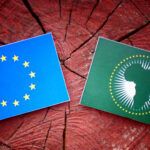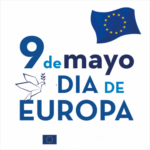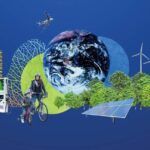This was the last of four European citizens’ panel that will provide input from ordinary Europeans to the conclusions of the Conference on the Future of Europe. The focus was on the EU’s role in the world and migration policy.
A total of 200 participants from all EU countries met in Parliament’s buildings to start a debate on how the EU should exert influence on the global stage, whether there should be an EU army and what to do with irregular migrants arriving on Europe’s shores.
“I didn’t expect it, but I feel really good [about the discussion]. I feel like something is moving in Europe. They [the EU institutions] are intending to move something, and hopefully not just on a superficial level but on a substance level,” said panellist Sotiria from Greece.
In search of common solutions
In discussions with experts, Europeans raised questions about EU relations with the US and China; arms exports from EU countries; and how feasible it is for the EU to speak with one voice at the UN Security Council.They also wanted to know why EU countries do not do more to train unskilled migrants and what the obstacles are to a uniform asylum system in Europe.Joachim from Luxembourg said: “We are facing immigration from third countries, economic immigration, pushbacks at the border. Migration is an extremely complex issue and I find that it is up to Europe, as a bloc, as a unit of cultural values, to find a solution.”
Issues to be discussed
At the first of the three sessions of the panel, participants identified issues to be discussed in the next two sessions:
- Self-reliance and stability
- The EU as an international partner
- A strong EU in a peaceful world
- Migration from a human perspective
- Responsibility and solidarity across the EU
The objective is to come up with recommendations about EU policy. They selected 20 representatives to join the Conference Plenary and present the outcome of their work.In her welcome speech, Dubravka Šuica, European Commission vice-president and co-chair of the executive board of the Conference on the Future of Europe, underlined the commitment of EU institutions to act on citizens’ ideas.“We open up a truly European public space, where from mountains to islands, from Lapland to Lisbon, you can share your ideas with others, appreciate different perspectives, and most importantly, you have the real possibility to make your voice heard and to stimulate change
What’s next?
The meeting of the fourth citizens’ panel concludes the first round of European citizens’ panels.
The fourth panel will meet again online 26-28 November and in person 14-16 January in Maastricht, the Netherlands, where they should finalise their recommendations.
The Conference on the Future of Europe meets in plenary 22-23 October to discuss progress so far and hear recommendations from young people, developed during the European youth Event.The Conference’s conclusions. taking into account recommendations from the panels, are expected in spring 2022.
Get involved and share your ideas for the future of Europe on the Conference platform.
Find out what was discussed by the first, the second and the third citizens’ panels.






Leave a Reply